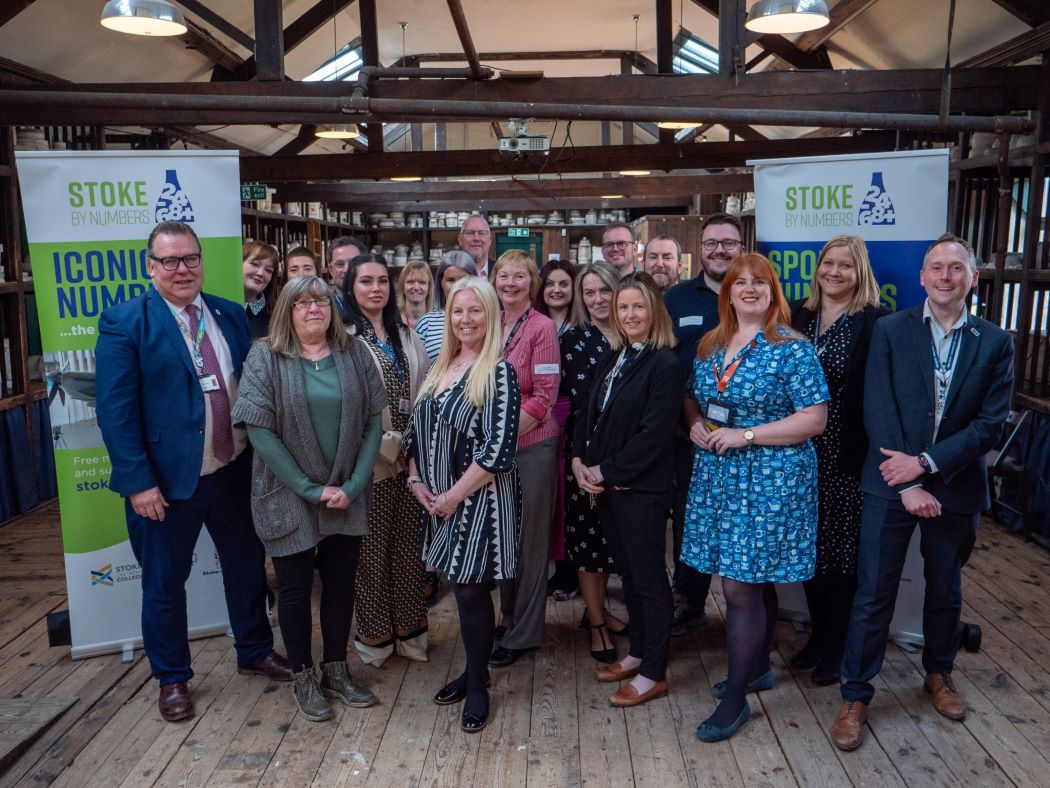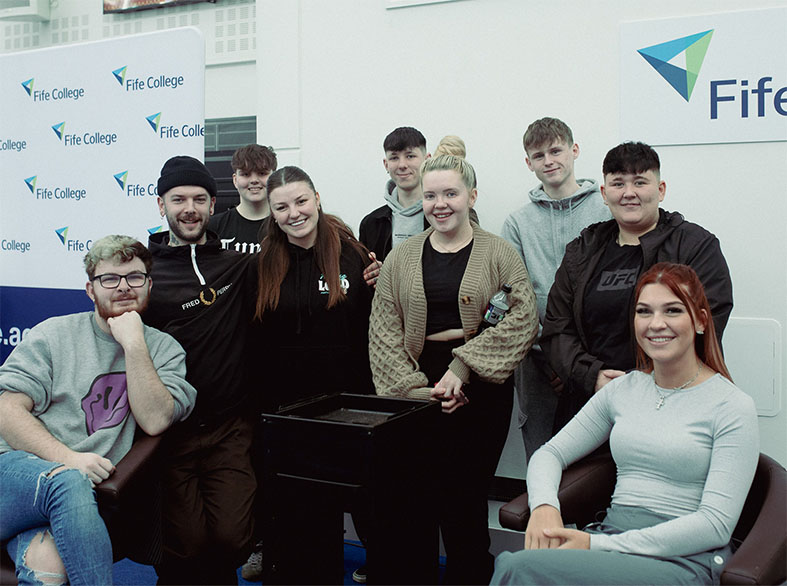T-Level Results Day 2023: Sector Response

Exams and formal assessments in England, including GCSEs, AS levels, A-levels, T-Levels and VTQs, went ahead as normal this summer, following major disruptions in previous years exams due to the Coronavirus Pandemic.
This year, A-level, T-Level and VTQ Results day is on the 17th of August, with GCSE results day the following week on the 24th of August.
This is the second year in which T Level results will be awarded. Over 4,000 students are awaiting their final results next week!
Last year, the first cohort of around 1,000 students received their T-Level results, with 92.2% of students achieving at least a Pass.
See our sector response piece in the run-up to results day 2023 here.
See the sector’s analysis here.
Thousands of pupils secure place at their first-choice university as grading returns to normal
- University acceptances up on 2019, with 79% getting first their choice
- 27.2% of A levels at grade A or above, compared to 25.4% in 2019
- 90.5% of T Level students achieve a Pass or above in the second year of the flagship new qualification
- Results back to pre-pandemic levels in an important step back to normal
Young people across England are celebrating exam results this morning – with thousands of them moving on to university, apprenticeships and the world of work.
Overall, 79% of 18-year-old pupils in the UK receiving a decision today have gained a place at their first choice university.
16, 530 students who received free school meals (FSM) have also gained a place at university which is a 60% increase from 2019.
Around 3,400 T Level students received their results today as the second-ever cohort completed the new, high-quality technical qualification. 90.5% of T Level students achieved a Pass or above.
T Levels offer a wide range of progression options as many of these students will also go on to do apprenticeships, and UCAS has today revealed that 1,220 T Level students have been accepted into university, demonstrating the value and reputation of these qualifications.
Over 250,000 certificates were awarded for those completing their Level 3 vocational and technical qualifications.

Education Secretary Gillian Keegan said:
“Congratulations to everyone receiving results today. There are more opportunities than ever before so whatever your results, I’m sure you will have a bright future ahead of you.
“It’s fantastic to see the number of young people accepted to university – including to their first choice – continue to be up on the years before the pandemic, while thousands more go off to exciting apprenticeships and the world of work.
“As always, there are a wide range of fantastic options for those who did not get the results they hoped for, and students can find out more by visiting the UCAS website or through the National Careers Service.”
Minister for Skills, Apprenticeships and Higher Education, Robert Halfon said:
“T levels provide a unique ladder of opportunity for young people to gain the knowledge and on-the-job experience needed to progress into work, an apprenticeship or higher education. All the courses have been co-designed with employers to ensure that students get the skills they need to succeed.
“From this September, there will be even more high-quality T levels available including agriculture and legal services, with more providers coming onboard, helping thousands of young people to progress into rewarding careers.”
College Contribution to Results Day 2023
There are over 1.2 million 16-18-year-olds studying in publicly funded education. Of those, around half (c. 49%) are studying in colleges, 43% in schools and 8% in work-based learning. There are more publicly funded 16–18-year-olds in colleges than in schools.
Qualification levels:
- 2% (c. 26,500) are studying at Level 1.
- 14% (c. 162,000) are studying at Level 2.
- 73% (c. 870,000) are studying at Level 3.
- 11% on other types of courses.
Level 3:
Nearly three-quarters (73%) of publicly funded 16-18 year olds (c. 870,000 students) are studying at Level 3. Over half a million of these Level 3 students are studying for A Levels, including over 140,000 also taking some Applied General qualifications in mixed programmes.
Over 320,000 level 3 students are studying Level 3 vocational and technical qualifications as their main programme, including T Levels and Applied Generals, such as BTECs and Cambridge Technical.
Colleges have:
- 90% of T Level students.
- 80% of Level 3 vocational and technical students.
- 44% of all Level 3 students.
- 23% of A Level students.
Sector Response
David Hughes, Chief Executive, Association of Colleges said:
“We should all be proud of the students who are finding out their results today – these are young people who have had to cope with enormous disruptions to their education and training during the pandemic and the uncertainties and challenges that presented to them. To see them achieve, having worked so hard is inspiring to see.
“As in any normal year there will be students disappointed as well as those delighted with their results. Our advice is always to focus on qualifications and grades as a passport to the next stage of study, training or employment rather than obsess about the grades themselves. Universities and colleges will be ensuring that every applicant is treated fairly and places on courses and jobs are available for as many as possible as is the case every year.
“We must also celebrate everybody who has studied and trained – not just those who took A levels. There are more than 320,000 students who have taken technical and vocational qualifications – including a small number taking the new T levels – these are tomorrow’s engineers, mechanics, healthcare workers, and all of those who help drive the country forward. We want them to feel special today and to celebrate their achievements equally and alongside those A Level student who are traditionally applauded on results day.
“Colleges across the country have played a major part in the successes today, alongside school sixth forms and staff and leaders of those institutions should be proud of their part in helping young people make the transition to adulthood through their learning. Around half of all 16-18 year olds in publicly funded education study in colleges across a range of qualifications including vocational and technical qualifications, applied general qualifications and A Levels.
“Colleges cater for all types of learning, training, skills and also play a significant part in helping young people from disadvantaged backgrounds make progress – with many students going on to achieve phenomenal successes, despite the pressures they face from the cost of living crisis or previous struggles in education and training.”
Vivienne Stern MBE, Chief Executive of Universities UK congratulates students on Results Day 2023:
“Congratulations to all those receiving their results today. Students have faced multiple challenges to their education over the last few years, and today they, their friends and their families should be feeling immensely proud of all that they have achieved.
“For those who are setting out on the journey towards university today, it is a momentous day. For me, my time at university was the best of my life. I know that it will open up opportunities for thousands of students. For those who are still finalising their plans through Clearing, please remember that there is lots of good impartial advice available via UCAS, online, on social media and through their phone lines. Universities are also on hand to support you.”
Paul Whiteman, general secretary of school leaders’ union NAHT, said:
“Congratulations to all students receiving their results for A Levels, T Levels, BTECs and other vocational and technical qualifications (VTQs) today. These grades are the result of a huge amount of hard work in challenging circumstances, by both students and school staff. Everyone should be very proud of their achievements.
“Although we are seeing different A level results nationally this year, this is not a reflection of the achievements of students, but simply a result of the government’s decision to transition back to pre-pandemic grading models. The numbers are a reflection of the system and not the students. Universities, employers and other providers know this and should take this into account when making decisions on places and offers.
“It is vital that everyone remembers that we cannot compare this year’s results with those from previous years. The student cohort, the context and the approach to grading has been different every year since 2019 so simplistic comparisons are unhelpful and will not tell the full story of the experiences of students or their schools and colleges.
“The results students receive today are not only an acknowledgement of their hard work and achievements but are a passport to the next stage of their lives. There are so many options available to them to get onto the path for their chosen futures whether that is through further study, training or employment.”
Dr Mary Bousted, Joint General Secretary of the National Education Union, said:
“The Union congratulates all students receiving their A-Level, Applied General and other Level 3 qualification results today. They have kept going through the pandemic and through years of austerity. Their determination and resilience, alongside the efforts of educators, parents and carers who support them, deserve great credit.
‘Exam results should not be taken as a valid measure of school quality. It would be wrong to compare results at a national level with those of previous years. It would also be wrong to use them to compare individual schools and colleges. Different methods of assessment have been used, different levels of pandemic disruption have been experienced and Ofqual has implemented different approaches to grading from one year to the next.
‘The efforts of parents, students and teachers are not matched by the quality of the exam system. The decision to return abruptly to pre-pandemic grading risks damaging the future of students from disadvantaged backgrounds, whose lives and learning have already been hit hard by the pandemic.
‘The exam system itself is badly in need of reform. The ways in which students and their schools and colleges are judged does not do them justice. Just as is the case with blunt, one-word Ofsted judgments, one figure calculated from the results of exams cannot alone demonstrate everything about the education on offer at a school or college. Relying on end-of-course exams does not allow students to demonstrate all they are capable of.
‘As the Independent Assessment Commission has argued, the demand for change is growing. There is a wide consensus that a curriculum and assessment review in England working towards a broader, fairer, more reliable and more inclusive assessment system is urgently required”.
Hadi Moussa, Managing Director, EMEA for Coursera
“Naturally, A-Level Results Day is an anxious time for many young people. This year, anxieties are more fraught than ever, with fierce competition expected for top university places. No matter their post-school plans, however, it’s crucial that students are aware of the variety of opportunities available to them when it comes to forging their career path.
“For many, the next step will be university, but, for all, it’s important to keep in mind that degrees are no longer the sole pathway towards a successful future. Indeed, following the government’s announcement to crack down on ‘rip off’ degrees, coupled with the average student loan repayment reaching £42,000, it is unsurprising that many young people have been left considering whether traditional degrees can justify the time, financial, and opportunity costs.
“In this context, though a meaningful degree premium continues to exist for most degree-holders, it’s still imperative that all of the UK’s school leavers ask themselves the crucial question: will my intended qualification arm me with the skills I need to succeed in today’s fast-changing world of work?
“Coursera’s own research found that less than half of Brits (48%) with a degree use the skills they learned at university in their jobs regularly, with 39% feeling that their course has not prepared them for their job role. While degrees continue to typically yield improved job opportunities, there are now a variety of educational pathways available to learners – such as microcredentials and professional certificates – that are better equipped to skill them quickly for today’s in-demand jobs.
“Such courses can be taken irrespective of A-Level attainment, meaning that even those who have missed target grades can find employer-recognised pathways to acquiring the skills that will transform their futures. In addition, an increasing number of microcredentials also ‘stack’ into university degrees, meaning that those with these qualifications can deploy them to launch a career or progress to higher education with a more solid skills base. For example, learners who complete Google’s IT Support Professional Certificate can use their qualification to count towards the University of London’s BsC in Computer Science – or to pursue an immediate career in the field.
“At Coursera, we’re seeing that Gen-Z are well-attuned to the changing labour market, and are increasingly taking courses to bolster their skills in specific in-demand areas. For example, Artificial Intelligence (AI) and Machine Learning (ML) courses currently constitute around 15% of total course enrollments, while Leadership & Management, Communication and Strategy are the top three areas in which young people are upskilling themselves when it comes to equipping themselves with human skills.
“So as the next generation of students take their next steps towards the world of work, we would encourage them to remember that, just as the world of work is rapidly changing, so must our approach to skills. No matter their results, there is now a wealth of flexible, accessible learning opportunities available to them – opportunities that may not have been available to previous generations, and that will play a central role in preparing the UK’s young people for a flourishing future.”
David Morgan, Chief Executive, Career Development Institute
“This year’s big results day story is that the government have returned grade profiles to their pre-pandemic levels after three years of higher grades. While they need to return to longer-term levels, England has made the change a year earlier than Wales and Northern Ireland and some called for the correction to take place over a number of years. Our real concern is the risk of widening the attainment gap between those from higher and lower income backgrounds. Young people from lower incomes were less likely to have had additional support during the pandemic disruption and this could limit their ability to move onto the next stage of their education, training or work.
“This could be exacerbated by the continuing rise in the number of 18-year-olds in the population, intensifying competition for degree places. Again, it is those most disadvantaged who are likely to be negatively affected and there needs to be a clear focus on supporting them to minimise the gap in opportunity.
“The good news is the continued expansion of alternative routes such as apprenticeships up to degree level that don’t leave students with a large debt and include valuable experience in the workplace. Higher Technical Qualifications also offer a route to gain skills valued by employers and many young people may directly enter the world of work or take time to re-sit exams or gain other experiences.
“Parents, carers and teachers may not have experience or knowledge of all these routes, so it’s important at such a critical transition point that young people have access to impartial, expert advice from the Careers Advisers in schools and colleges. They support young people in defining what they want from their career, advise on the options for their next step and support with the application process as well as any barriers they may face. It’s important that young people make the right choice for them and are confident in their next step.”
Bill Watkin, Chief Executive of the Sixth Form Colleges Association, said:
“Sixth form college students have achieved truly remarkable successes once again, with outstanding exam results and countless wonderful stories of happy students taking up places at their first choice destinations. This is testament to the talent, skill and relentless focus on high standards that characterise the students and their teachers across the sixth form college sector. Of course, results this year are engineered to look more like those of 2019, before Covid struck, so comparison with the last two years is unhelpful. What matters is that universities and employers understand this and are adjusting their requirements in line with this year’s grades.”
Robert West, CBI Head of Education & Skills, said:
“Congratulations to all those receiving their A level and T level results today, and to those receiving their vocational and technical qualification results. The disruption to students’ education due to Covid-19 should not be underestimated. These have been difficult years and both students and teachers alike have overcome unprecedented challenges. They should all be proud of their achievements.”
On T levels, Robert said:
“Raising understanding of T levels amongst young people, their parents and firms remains essential. The CBI’s latest Education and Skills Survey showed that 65% of our member respondents had only a little awareness or no awareness at all of this ‘flagship’ programme. Making sure that students and firms alike know about T levels is crucial, particularly given concerns about drop-out rates and the availability of meaningful work placements.”
On regional differences, Robert said:
“In 2022, the gap between the performance of students in the North of England and students in the South widened, and it is disappointing to see this trend continuing. The challenges facing schools and colleges in the North of England have been well documented, and it is something our regional teams based in Newcastle, Leeds and Cheshire regularly talk to me about. But we are still awaiting significant policy changes that address the root causes of the problems. The Government needs to turn words into action when it comes to levelling up and regional growth to tackle these challenges.
Lisa Morrison Coulthard, Research Director at the National Foundation for Educational Research (NFER) said:
“NFER commends the second cohort of T Level students on their results today. The results reflect the continued hard work of providers, as well as the students, in getting to grips with the T Level requirements both within the classroom and on work placements.
“Further investigation is required into the high drop out rate of a third of this cohort of students. Our T Level studentsurveys with NatCen highlight that issues remain in bedding in some of the newer qualifications, such as health and science, where satisfaction rates were lower.
“It will also be important to evaluate the progress of T Level students to higher education and employment, as well as how valuable they are perceived to be by industry and higher education.”
Dr Katerina Kolyva, CEO at the Education and Training Foundation, said:
“Congratulations to all T Level students who have received their results today. We are delighted to see another year of positive results, with 90.5% of students passing. Every student can be proud of their achievements, as can all the staff at T Level providers who have supported delivery of the qualification. The ETF, working with its valued delivery partners, has had the privilege of supporting many of these providers and their staff with T Level planning and delivery through the T Level Professional Development (TLPD) offer, funded by the Department for Education.
“It’s fantastic to see increasing numbers of providers delivering T Levels, with more subjects becoming available each September. As more providers offer T Levels – and more students choose them as a promising pathway to begin their careers – the qualification will continue to upskill the future workforce, providing the technical skills and industry experience that are in such high demand across the economy. T Level students receiving their results today will now go on to employment, apprenticeships, or higher education. We wish them the best of luck in their next steps, and we look forward to continuing our support for all T Level providers, including those preparing for their first year of T Level delivery this September.”
John Blake, Director for Fair Access and Participation at the OfS, said:
‘A huge congratulations to each and every student receiving their qualification results today. The past few years have been challenging for all students, who have worked incredibly hard throughout their studies.
‘There are many exciting opportunities awaiting all students receiving their results today. Many will be heading off to higher education, either to their first choice, or another course through Clearing. For those going through Clearing, Discover Uni has lots of information and students can compare courses they’re interested in studying. Other students might be considering degree apprenticeships or other higher education options.
‘We will be closely reviewing the outcomes and destinations of students to ensure that universities and colleges continue to meet our regulatory expectations, and do all they can to ensure those who want to benefit from higher education have equal opportunities to do so.’
Liberal Democrat Education spokesperson Munira Wilson MP said:
“Congratulations to all those students who received their results today, whether that was A Levels, AS Levels, T Levels or BTecs. For many the exams they took were the first formal exams they have ever sat and they also endured the full brunt of the pandemic on their education.
“While every single student should be immensely proud of the results they have received today, there are thousands who will have missed out on the grades they hoped for.
“To those students, Rishi Sunak must apologise for the 28 million days of lost learning during the pandemic and for his refusal to invest in COVID catch-up programmes.
“No child should be left behind or forced to miss out on a university place because of this Government’s incompetence.”
Sarah Danzl, CMO of Skillable on why exam results are not an indicator of future success said:
“In the midst of exam results season, if those results aren’t quite what you’d expect, all is not lost. Today’s employers are looking for talent that they can grow long-term, and grades are only part of what they’re looking for when they’re assessing your skills. More employers, like IBM, Walmart, and Boeing are looking at skills over credentials when hiring employees.
“It’s worth focusing on how you can build practical experiences to show employers that you have the skills they need. Internships, volunteering, and apprenticeships are some ways to practice skills. Some employers also offer hands-on courses and ‘skill’ labs that focus on specific digital, management, sales, and marketing skills. The more you practice a skill, the more confident you’ll feel when applying it to a role and that will come across during interviews with employers.
“As you embark on the next stage of your growth, whether that’s returning for another school term, to college, or employment, remember that future employers will be looking at your overall skills and aptitude for learning. Grades are a moment in time, they become increasingly outdated as your career progresses. So focus on cultivating a lasting habit of building and refining your skills. That mindset, not your grades, will ultimately determine your career trajectory.”
Sam Tuckett, Associate Director at the Education Policy Institute, said:
“Congratulations to the cohort of students completing their Level 3 studies study. Their final years in education have been far from straightforward and it’s important that universities, colleges, and employers remember this as they progress into further study or employment. As was the government’s plan, the grading distribution this year has been brought far closer to that of 2019 than in any of the last 3 years. 26.5% of entries were awarded an A or A* this year, compared with 25.2% in 2019, and 35.9% in 2022. While there was no perfect solution to returning to pre-pandemic grading, the gradual, multi-year approach is a reasonable compromise.”
“Concerningly, while nationally grades have returned to roughly 2019 levels, today’s data reveals regional variation in outcomes has increased since 2019, with the gap in outcomes between the north of England and the south having widened. In Yorkshire and The Humber, a lower proportion of entries were awarded A or A*, with the share of top grades decreasing from 23.2% in 2019 to 23.0% in 2023. Similarly, the North East’s share of the top grades fell from 23.0% to 22.0%. Students in all other regions were awarded higher proportions of top grades than in 2019, with London’s share of A or A* grades increasing by 3.1 percentage points. The falling outcomes in parts of northern England, where disadvantage levels are higher on average, may be the result of the unequal impact of pandemic on different groups of students. Further investigation of data that is released later in the year will help to clarify this.”
“Across different types of schools and colleges, the proportion of A and A* grades is lower than last year, but slightly higher than in 2019. In further education colleges, however, the proportion of these top grades decreased from 16.5% in 2019 to 14.2% in 2023. This could well be that there has been greater learning loss and absence in these settings, which generally cater for greater numbers of disadvantaged students. Our previous research on earlier phases has demonstrated that it has been disadvantaged students who have been most acutely impacted by both learning loss and absence over recent years.”
“Exploring the T level results published today we find high drop-out rates for these new qualifications, with only 66% of students completing in 2023. This figure is significantly lower than the pre-pandemic completion rates of 79% and 76% for applied general and tech level qualifications. Given this, serious consideration should be given to the government’s plans to remove alternative qualifications that T levels overlap with.”
“While the grades seen in today’s result represent a return to pre-pandemic times, the environment for education remains substantially changed. Schools and colleges continue to catch students up on lost learning as a result of the pandemic’s disruption, whilst pupil absences remain stubbornly high. It’s clear that much more needs to be done to identify and rectify the long-lasting impacts of the pandemic.”











Responses